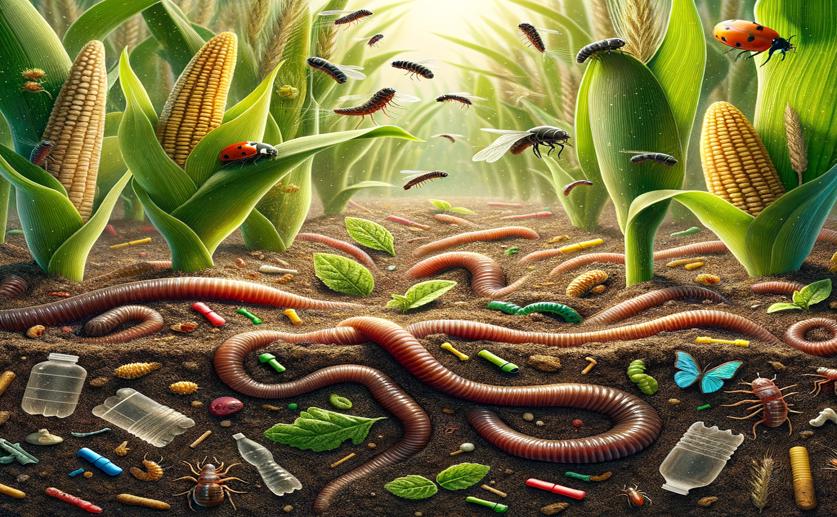
Earthworms Help Crops Fight Insects Even When Microplastics Are Present
Greg Howard
6th September, 2024

Image Source: Natural Science News, 2024
Key Findings
- Researchers at Nankai University found that earthworms can help tomato plants grow better in soils contaminated with microplastics (MPs)
- Earthworms increased the levels of silicon and lignin in damaged tomato leaves, which are important for plant defense against herbivores
- Earthworms also boosted the plants' antioxidant metabolism, reducing damage from herbivores and helping plants stay healthier under MPs stress
AgricultureEnvironmentAnimal Science
References
Main Study
1) Earthworms Enhance Crop Resistance to Insects Under Microplastic Stress by Mobilizing Physical and Chemical Defenses.
Published 5th September, 2024
https://doi.org/10.1021/acs.est.4c04379
Related Studies
2) Global Responses of Soil Carbon Dynamics to Microplastic Exposure: A Data Synthesis of Laboratory Studies.
3) Plant defence to sequential attack is adapted to prevalent herbivores.



 26th July, 2024 | Jenn Hoskins
26th July, 2024 | Jenn Hoskins